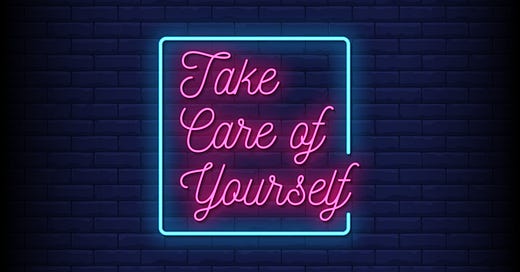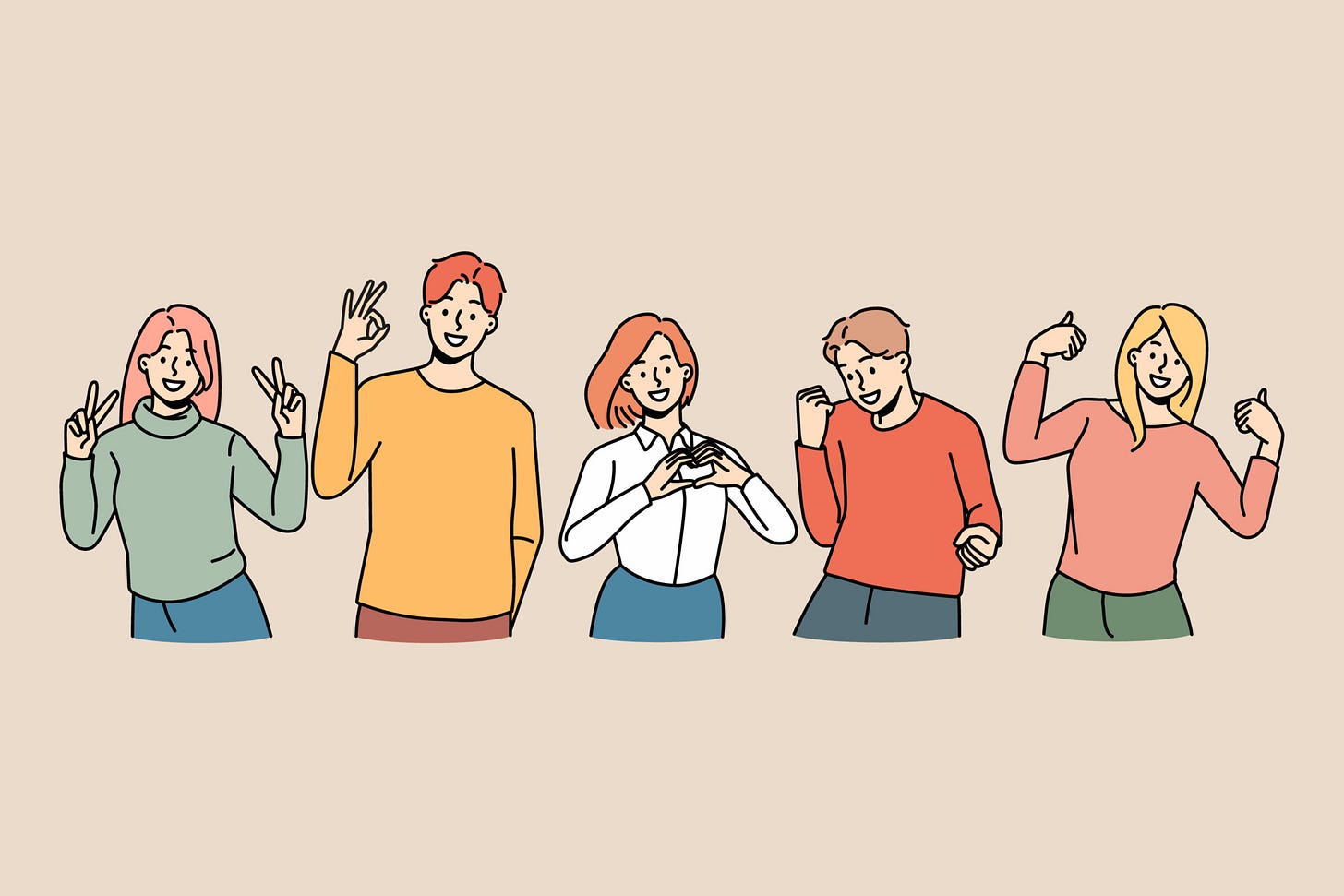NMCJ - 5: What I learned from a gruelling job hunt
Lessons from a long and exhausting quest to find a job
Happy Friday everyone!
Welcome my fifth newsletter.
A job hunt is a journey that takes a huge toll mental on anyone having to go through it. The journey is accompanied by the toxic trinity that I call URS i.e. Uncertainty, Rejection and Self-doubt. The intensity of the URS trinity is directly proportional to the time taken to secure a job. In other words, the longer the job hunt, the more one’s resilience is tested to the core.
In my case, as I shared in last week’s piece, I was getting into job hunt mode after getting laid-off. Thus, I was carrying some bitterness within myself as well. I was constantly questioning myself and reflecting on where I had gone wrong. I was also harbouring resentment against the leadership at my previous employer so that sense of ‘I’LL SHOW THEM’ was there as well.
It wasn’t an easy experience to go through at all. Yet, it taught me some invaluable lessons regarding the approach to take, the mindset to develop and, ultimately, I ended up landing my next gig. This week, I’ll share some insights gained during this challenging period.
Here goes……..
Make sure to be kind to yourself
Landing a job is HARD! The world out there is competitive and we’re all struggling to stand out in some way. For every job that is open, there might be hundreds of people who are interested. It could feel as if one is helpless and, well, not good enough.
It’s extremely important to practice self-compassion and to take care of oneself. Mental and emotional well-being need to be kept in check when in job hunt mode. Setbacks have to be acknowledged, negative self-talk has to be kept in check and, well, self-kindness is pivotal. Taking care of one’s mental and emotional well-being is crucial to maintaining resilience during the job hunt.
It’s, of course, one thing to write it all like I just did but watching out for yourself can be hard. In my case, I struggled a lot. I felt this constant urge to, well…..apply and every free moment I’d go through would somehow instil a sense of guilt inside me. I used to go crazy browsing job boards on my phone and deep down….I was scared….shit scared!
My wife, then, sat me down and that’s when I realised I wasn’t doing myself any favours by worrying myself to such extremes. I developed a routine to exercise, eat healthy. I made sure to take some time for my own self, read a bit before going to bed and, well, to get a good 7-8 hours of sleep every night at least. It helped a lot because the more relaxed I became. I could, then, start to……
…..develop a plan and stick to it

Once the dust starts to settle a bit, it’s time to hit the ground running again. It’s time to clean up your CV, your LinkedIn profile and start looking for your next gig. I, however, got bogged down early on. It seemed like a herculean task because, once I had updated my CV and all, I didn’t know where to begin. I kept on browsing LinkedIn and other job pages. I started marking the openings I found interesting but that led me into a rabbit hole. It started to overwhelm me. I couldn’t get my mind off it. Whether I’d be on the toilet seat (no kidding) or watching Netflix or eating, I’d have this urge to search for roles and mark them. It was driving me insane!
One fine day, then, I sat down and made the following daily schedule:
0900-1000: Browsing and saving job postings
1000-1200: Applying i.e. writing cover letters, tweaking my CV for particular roles, etc.
1300-1400: Reaching out to people in my network who might be able to help e.g. ex-colleagues or people I had met at some point who now were working at companies I was interested in.
1430-1530: Reading articles, watching videos etc on my particular area of interest, or following a course/certification.
1545-1730: Bonus time: could be divided amongst any of the above listed tasks.
The breaks in between would be for lunch, dinner, coffee or a quick walk around the neighbourhood if I feel like it. After 1730, I would work out, help with groceries and take care of the non-job hunt related bits that were important as well. The Netflix bit would happen whilst having dinner and well, I’d put my phone to one side then.
Making a plan kept me grounded, made me feel less overwhelmed and, somehow, it allowed me to tell myself that I was doing all I could to move on and, that, the rest would happen in time. I did still have low moments of self-doubt but the frequency and intensity wasn’t as high as it was before.
Set realistic expectations
Setting realistic expectations is extremely important, not only to avoid disappointment and frustration, but also to keep the focus on efforts that are likely bear fruit. Aiming high is great but being practical about one’s skill-set, qualifications and the job market can help with tailoring one’s approach and strategy.
I, for instance, realised quickly that it was a tough market that I was trying to find a job in. SaaS companies across the board were laying people off and that meant that the market was flooded with talent. I, thus, knew that I might need to settle for a package that was slightly below my expectations and I might even need to take up a role that would require me to delve into areas I wasn’t interested in.
Think about your strengths
Reflecting on your strengths can be a powerful tool during a job search. Identifying one’s core competencies, skills, and unique qualities can help with understanding what could make one valuable for potential employers. Focusing on your strengths, hence, can not only boost your confidence but also guide you in tailoring your applications and interviews to highlight these strengths.
This seems like an obvious point but I have come across many people who ignore it. They don’t highlight their skills and strengths on their CVs, for instance. The same goes for their LinkedIn profiles. In my experience, this is a low-hanging fruit and can make a huge difference in being asked to come in for an interview or not.
Be as focused as you can but cast a wide net
While having a clear career goal is important, it's equally vital to cast a wide net during your job search. You could have a ‘dream’ company to work for but, then, that dream company might not have an opening. Thus, it’s good to have an ideal role or employer in mind but it’s also important to be fluid.
On my end, I knew that I wanted to be considered for roles that focused on Operational Excellence (that’s where I had the most experience) but I made sure I wouldn’t limit myself to one industry. I ended up with one job in the end, of course, but the whole experience allowed me to expand my network and learn about industries and segments that I didn’t have a clue about previously.
Be prepared for a long slog
Enduring rejections, setbacks and the excruciatingly painful waiting periods can all take a huge toll on anyone going through such a phase and requires a lot of perseverance. Keeping your chin high and chugging along can mean the difference between securing a job eventually and, well, not being able to get one.
On several occasions, I made it to the very end of the process i.e. the final round but then, for one reason or the other, wasn’t offered the job. It was incredibly hard and I wanted to simply shut down and give up on such occasions. I have no idea how I was able to muster up the strength to get back into it but I guess it was the sense of ‘being positive’ that somehow kept me going.
Surrounding oneself with positivity
A positive support system can be a lifeline during challenging times. Surrounding oneself with friends, family, or mentors who offer encouragement can help a great deal. Share your experiences, celebrate small victories, and seek advice when needed. Positivity not only helps in maintaining motivation but also provides a fresh perspective on the situation at hand.
Exercise is also something that I encourage a lot. I already mentioned that I developed a routine and it did wonders for me. There were countless occasions that were very hard to deal with, especially when, on several occasions, I got rejected for jobs that I thought I had a solid shot at. An hour in gym or a long walk can do a lot in such situations. Physical exertion, in my experience at least, helps a lot in putting setbacks to one side. It helped me get back my focus and get back into the process, even more pumped up.
Upskill if the situation allows
Beyond self-reflecting and figuring out what direction one would like to take, getting laid off is a great opportunity to take some time and hone your skill set. Taking courses and certifications is a great way to show your aptitude and interest in a particular area.
For my part, I took some time to take up courses through Hubspot and, subsequently, certifications. It served as a valuable add-on to my experience. On top of being something that would be highlighted on my CV, it gave me the confidence to come across as someone who has the aptitude needed to excel in my particular field.
Leverage your network
It’s no secret that your network can take you a long way professionally. When thinking of looking for a job, networking can be your superpower.
If you know people who can put in a good word for you or connect you to people who potentially might be able to help, that gives you a major edge in your job hunt. If you submit a regular application for a job, you might be one of hundreds of applicants and might struggle to stand out. If you go through your network, that alone can help your application get flagged and might help you in the interview process as well.
In my case, I started reaching out to people and asking them for a chat over a coffee or lunch. I don’t recall any of these meetings ending without me having a tip for someone to reach out to or to look into a role that had opened up at some company.
Wherever you end up in the process, seek feedback
Receiving constructive feedback is invaluable, regardless of the stage of your job hunt. Whenever I faced rejection, I made it a point to ask for feedback from interviewers or hiring managers. Understanding areas for improvement can turn setbacks into opportunities for growth and that is exactly how the feedback helped me.
I made it a point to incorporate the feedback received in order to refine my approach and continuously enhance my chances of success. It’s often hard to take criticism and not feel bad about it but that is exactly the approach to take. It’s important to recognise shortcomings and work on making improvements.
Conclusion:
Embarking on a gruelling job hunt is an arduous but transformative journey that demands self-reflection, resilience, and adaptability. Finding a job may be extremely tough but the lessons learned along the way can shape a more resilient, self-aware, and ultimately successful professional.
Thanks a lot for taking the time to go through this newsletter. I hope you found it worthwhile :).













Job hunting is the most challenging thing one can do, and the rejections puts oneself in so much self doubt. The self esteem is so low, that it gets hard to find your strengths, or sell yourself at any point. In my experience, I couldn’t get myself to think about my strengthens or reach out to people because I thought I am not worth anything due to the constant rejections or lack of interview calls. Your piece is a great reminder as to how not to get bogged down by the stress and crumble under the pressure and overwhelm. I really like the idea of having a schedule and treating it practically, in that way you can do something practical about the situation.
Thanks for sharing this piece, it’s a good reminder of how others have dealt with the situation . It’s not easy to share something so personal.
What a great helpful list of tips! This is really well thought out. And I love your graphics!!!